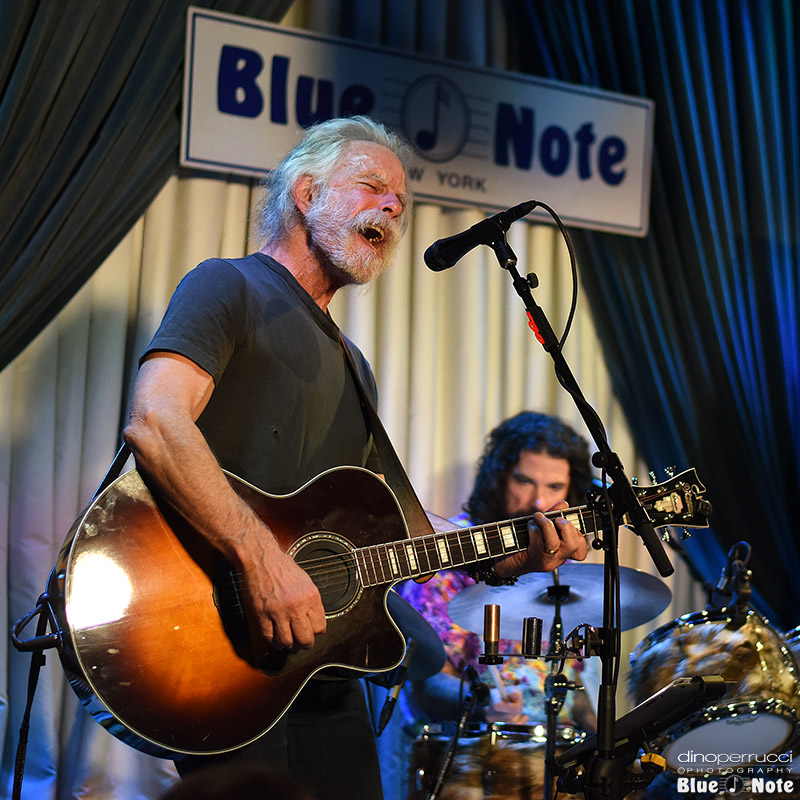Bob Weir Talks Writing with John Prine, Dreams About Jerry Garcia and More

In a new feature from GQ magazine, Bob Weir opens up about a number of topics, including a nascent songwriting endeavor with the legendary John Prine, a couple of important dreams he’s had featuring his late friend and bandmate Jerry Garcia, how he’s keeping healthy while on the road, his thoughts on sobriety and more
The interview, conducted in various locations including in Weir’s tour bus outside his Wolf Bros show in New Orleans earlier this spring, reveals that Weir and Prine recently met for a songwriting session, initially coming together for a “get-acquainted” meeting to kick off a collaboration that could produce a song or two for Weir’s planned studio album with Wolf Bros.
Early on in the GQ piece, Weir touches on the many friends he’s had throughout the years that have passed on, specifically Garcia, who Weir says came to him in a dream involving “invisible paint” the same night the late guitarist died in 1995. “He had a real sort of intense look in his eye,” Weir explains. “He looked straight at me, and then through me, and then he stepped into me.
“I think death means more to most folks than it does to me. I take it fairly lightly,” Weir also points out. “I don’t know how much of a divide death puts between us and the hereafter—if after is even an applicable adjunct there.”
The interview also features chime-ins from Weir’s Grateful Dead and Dead & Company bandmate Mickey Hart, his manager Matt Busch, his Wolf Bros collaborator Don Was and Andy Bernstein, co-founder of the HeadCount organization of which Weir is a board member. The GQ conversation ranges in topics, including Weir’s current facial-hair style, his former role as “the Kid” in the Dead, the various projects that he’s involved in (besides Dead & Co. and Wolf Bros, there’s a coyote-myth opera, a symphony, a narrative Grateful Dead TV series and even an idea for a signature poncho with pockets) and Weir’s current exercise and health regimen.
Weir explains that his “Three Pillars of Happiness” are exercise, meditation and “the constant pursuit of purpose” and admits that years of guitar playing and live performances have left his back and shoulder in pain if he plays for too long. It’s an issue that he’s dealt with in questionable ways in the past.
“I went to doctors. I went to physical therapists. But the only thing that really worked was opiates, and so I got good and strung out on them,” Weir says. “I would have to come home and go through withdrawal after every tour.”
On drugs and alcohol, Weir says that he’s tried sobriety but that he’s “not as happy as when I drink.” He says he tried heroin with Garcia, but it didn’t take over his life like it did his fellow guitarist’s.
“I’ve wondered about that a lot: How come this bullet with his name on it wasn’t a bullet with my name on it?” Weir says. “We weren’t that different. But I guess I knew that, like with this pain in my back, I was going to beat it. I’m an optimist, and I’m not sure Jerry was all that optimistic.”
Weir also recounts a more recent dream he had of Garcia, when the late musician visited him in order to inspire a new composition.
“I’ve always known a song was a critter,” Weir begins. “A new one comes through the door and I want to check it out. I want to sniff its butt, and I want it to sniff mine. Jerry came to me in a dream not long ago and introduced a song to me. It was kind of protoplasmic—you could see right through it—but it was like a great big sheepdog. And he just confirmed to me what I always suspected: that a song is a living organism.”
Weir later mentions that Garcia is still with him when he plays and writes music, offering his input in Weir’s mind and memory. “And either I listen or I don’t, depending on how I’m feeling,” he says. “But it’s always ‘How’s old Jerry going to feel about this riff?’ Sometimes I know he’d hate it. But he’d adjust.”
Read the full GQ feature here.



















